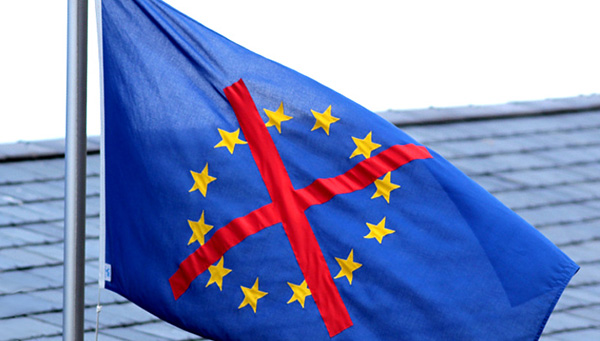
The EU has been, and continues to be, an essential frame of reference for Spain. In the debates during this new election campaign people have occasionally resorted to expressions such as ‘Brussels demands that we…’ and ‘Brussels asks us to…’, sometimes forgetting that we ourselves are part of Brussels, that part of our sovereignty has been ceded (such as monetary policy, and now the budget framework, just in case) but that there is also a good deal of shared sovereignty. And that a great deal, a very great deal (the priorities of the budget within these limits, health, education, pensions, unemployment benefits, defence, etc.) remains within the domestic remit.
Europe naturally features in all the political parties’ manifestos. But now, compared to December, there are significant differences between the far-left Izquierda Unida (IU) and Podemos –concerning the euro and transatlantic relations, among others– given that they have formed a pact but do not have a shared manifesto. Europe, Spain’s European policy, is the great forgotten (or concealed?) issue in this campaign. And it will be late in the process (although it could still have an impact) when we find out on Thursday night or the following day the results of the Brexit referendum in the UK, which could have a major effect on Spain. The subjects of refugees and immigration have come up occasionally in the debates, but not the issue of the concept of Europe that Spain wants to see –although everyone is against Brexit–.
An exception was the debate organised by the Fundación Alternativas for the presentation of its annual report on the state of the EU, where one could hear, in addition to Podemos (Ignacio Álvarez) and Ciudadanos (Juan Carlos Girauta), a Minister of Foreign Affairs, José Manuel García-Margallo, repudiating the policy of austerity; and his socialist counterpart, Josep Borrell, distancing himself from the perennial ‘more Europe’ –there is no appetite for this, either in European societies or government– focusing instead on some specific and modest proposals rather than grand schemes or ideas that have not yet managed to get off the ground, such as eurobonds. The socialist candidate Pedro Sánchez, in the four-way televised debate, was, it is true, still defending the idea of a ‘United States of Europe’. All agreed on the need to relax the pace of deficit reduction in Spanish public accounts, and in this as in other debates, with the exception of Ciudadanos, the candidates tried to ignore the prospect of cuts as a means of addressing the excessive deficit.
One problem is that Spain deceives itself and is isolated, or almost, in its support of ‘more Europe’ –however desirable this may be, and it is– and the ‘ever-closer union between the peoples of Europe’, an idea that is going to separate it, with or without Brexit, from London and later perhaps, by emulation or contagion, from other Member States; although it is evident that the eurozone needs to be strengthened if it does not want to run the risk of regressing or breaking up.
Underlying this is public opinion in Spain where, for the first time, as in other EU countries, those with an unfavourable view of Europe (51%) outnumber those with a positive view (47%), according to a recent survey conducted by the Pew Research Center in the EU’s 10 largest countries. The Eurobarometers do not echo this finding, although they do show a downward trend. Spain is not immune from the growing scepticism surrounding the idea of Europe that is spreading throughout the EU, arising in the wake of the 2008 crisis, and above all the EU’s attempt to manage it from the spring of 2010 onwards with a sudden lurch towards austerity. The Pew report suggests that various countries have seen the percentage of favourable views of the EU falling notably between 2012 and 2013, although it recovered in 2014 and 2015. Currently, however, public support in the EU’s largest members is once again undergoing precipitous decline.
There are nuances at the heart of Spanish public opinion. To start with, young people aged 18-34 are more favourable (53%) towards the EU than the 35-49 age group (49%) or older people (aged 50 and above, 44%). Classified by ideology, the left is less favourable towards Europe (35%) than moderates (50%) or the right (59%).
Although there is widespread opposition in Spain (70%) to the prospect of Brexit, according to the same survey the very British idea of devolving European powers to national governments (35%) is more popular than giving more power to Europe (30%) or maintaining the status quo (27%).
These changes in public opinion are hardly surprising for a Spain that is fully integrated into the EU. For when there is no European project –and at the moment there is none– the Spanish project, awaiting renewal, also suffers a serious setback.


